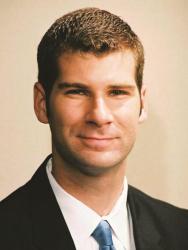Content from the Brookings Doha Center is now archived. In September 2021, after 14 years of impactful partnership, Brookings and the Brookings Doha Center announced that they were ending their affiliation. The Brookings Doha Center is now the Middle East Council on Global Affairs, a separate public policy institution based in Qatar.
The Doha Discussion Papers provide testament to the opportunity for renewed dialogue between the United States and the Muslim world. Written specifically for the U.S.-Islamic World Forum’s three task forces, they have been edited and compiled into separate volumes on governance, human development and social change, and security. The Doha Discussion Papers bring together the major papers and responses that frame each of the task force discussions. They include as well a summary of the off-record discussions at each of the task force sessions held at the U.S.-Islamic World Forum.
INTRODUCTION
The U.S.-Islamic World Forum is a global conference held in Doha, Qatar. Since 2004, it has brought together key leaders in the fields of politics, business, media, academia, and civil society from across the Muslim world and the United States. Its goal was to address the critical issues dividing the United States and the Muslim world by providing a unique platform for frank dialogue, learning, and the development of positive partnerships between key leaders and opinion shapers from both sides.
The issue of security, how it is mutually defined and perceived, is perhaps the most critical issue to current relations between the United States and Muslims states and communities and their future. Thus, as part of the goals of the overall Forum, a task force was convened to examine and convene dialogue on critical issues of security and how they affect the relationship between the United States and the broader Muslim world.
The first part of the effort was to examine our mutual perceptions on security, where they are aligned and where they are different. Two leading thinkers from the United States and the Muslim world were commissioned to author short papers that would “set the scene” for discussions. M.J. Akbar and Kurt Campbell are not only influential opinion leaders, whom leaders on both sides of the divide consult for policy advice, but also analysts widely admired for their thoughtfulness.
The two authors were each asked to examine the same set of questions:
- What were the major trends and events over the last year that shaped security and perceptions of security between the United States and Muslim world?
- What do these trends and events project for the next 1-5 years?
- What are the key challenges and important events that we should prepare for over the next 1-5 years?
In the following sections are the result of their analysis. It is interesting and informative to examine the parallels in how these two leaders answered the same set of questions from their own perspectives, as well as the divergences in some of their conclusions.
Using the papers as a baseline for discussion, the Forum then assembled a diverse set of U.S. and Muslim world leaders for a focused discussion on key security issues. Those participating came from various parts of the United States, as well as Muslim states and communities in Africa, the Middle East, South Asia, and Southeast Asia. They included academics, politicians, journalists, generals, business leaders, civil society organizers, and advisors to each of the major 2008 U.S. presidential campaigns.
Over the course of two days, we examined a range of important issues, including the status of strategic relations between the United States and Muslim states and communities, the security situation in the Gulf, and the status of the so-called “war on terrorism.” The sessions were held in a not-for-attribution setting to emphasize frank and open dialogue. Included is a summary of their discussions.
The goal of the task force was not to come to some type of mutual agreement or unanimous concord on what are obviously thorny issues. Rather, it was for each of the leaders to leave the experience with a better understanding of the issues and, more importantly, each others’ perspectives on them. Ideally, the following papers and report will forward that goal beyond. It is only through building bridges of understanding that we will be able to recognize and reach our common goals.
— Peter W. Singer



